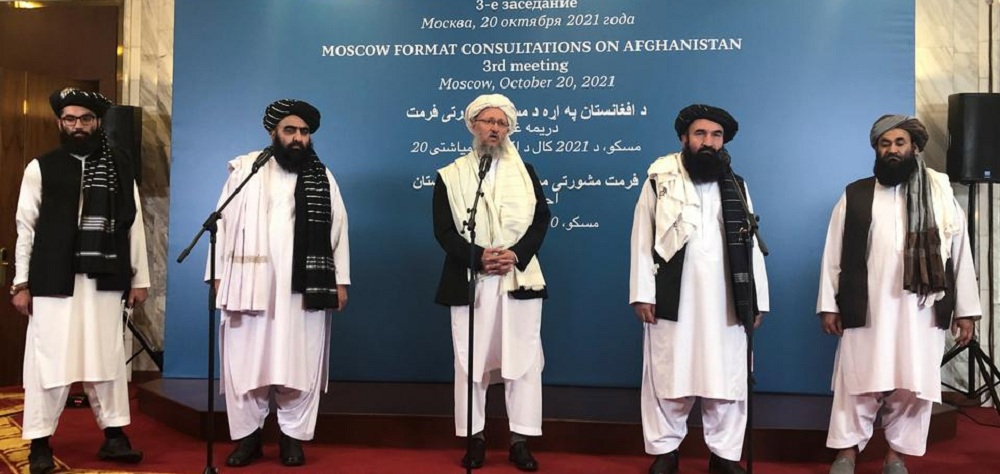Alwaght- Moscow Afghanistan summit was held on Wednesday with the representative of 10 regional states and a high-ranking Taliban delegation. The meeting discussed economy, reconstruction, government, and security outlooks of Afghanistan and called on the international community to help the Central Asian nation stave off a humanitarian crisis.
A remarkable point is that the meeting is the first international event the Taliban is attending, two months after the takeover. The Taliban are going to a country viewing them as a terrorist organization.
Moscow meetings on Afghanistan were launched in 2017 based on a mechanism of consultation of important Afghanistan neighbors, Russia, China, India, Iran, and Pakistan. Yesterday gathering was a sequel to those meetings.
Russia, Iran, China, Pakistan and some key Central Asian states attended the recent Moscow summit, but the US did not, citing “technical reasons”.
What are the major goals of the summit?
Security issues and counter-terror fight: As in all past years, in which security and counter-terrorism were the main focus of the participants in each summit— political or even multilateral and bilateral meetings on developments in West Asia, Central Asia and North Africa— the Moscow summit also focused on counter-terrorism and the threats posed by the fall of Ashraf Ghani's government in Kabul and the abrupt withdrawal of foreign troops from the country. Meanwhile, countries such as Iran, Pakistan, Tajikistan, and others are among the countries that will be directly affected by any insecurity and activism of terrorist groups like ISIS in Afghanistan.
Additionally, Russia is one of the actors that is deeply concerned about the entrenchment of terrorist groups near its borders in Central Asian states. Fighting terror threats, thus, is the top priority for the participants.
Addressing ethno-sectarian and minority challenges: At the present time that the Taliban are in control of the government, Afghanistan's neighbors are still worried about the fate of ethnic and religious groups close to them. Tajikistan is deeply concerned about the fate of Tajiks, Uzbekistan is deeply concerned about Uzbeks, and Iran is particularly concerned about the fate of Shiites in the country. Given the composition of the participants, it seems that each country sought to present its concerns as well as solutions to ethnic and religious challenges and expect the Taliban delegation headed by Abdul Salam Hanafi, the group's Deputy Prime Minister, to provide guarantees.
Cutting Afghanistan-related frictions among regional actors: Another goal was to bring closer to each other the stances of the participating countries regarding future Afghanistan developments. Although so far there has been no major conflict of views among the participants on the Afghanistan developments, each participant, naturally, has its specific posture. The Moscow summit can help downgrade the friction of views and bring them closer.
Future government, Taliban legitimacy: The participants discussed the future Afghan government and legitimacy of the Taliban. Currently, the Taliban hold 99 percent of the posts in the interim cabinet. Contrary to initial expectations and promises, the group did not involve any other ethnic or religious groups in the formation of the new government, and this seems to have played a vital role in delaying its recognition by various actors.
Transition from international to regional Afghanistan approach: A noteworthy issue here is that Afghanistan case is witnessing a transition from international approach, represented by Western powers, to a regional approach. In other words, in the past the US and a number of European powers unilaterally handled the international crises and fate of some countries including Afghanistan. But presently and amid the largely scandalous US and NATO withdrawal from Afghanistan, the Moscow summit tells a fact to all: The world developments are no longer handled by the Americans alone and it is the various regional actors that have to make decisions on the crises in their vicinity. The US absence from the Moscow summit even bears signs to this emerging order.



























